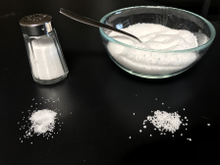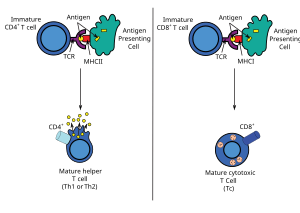

In earlier days, cancer was supposed to be a death sentence. Presently, there have been many advancements in the treatment of cancer. Therefore, the rate of survival of cancer patients has increased, with many leading a good quality of life even after being diagnosed with cancer.
In recent years, adoptive T-cell therapy has particularly been developed as an effective cancer treatment tool. In this method, some of the body’s white blood cells, that is, the T cells, undergo such a modification that they gain the capability of recognizing and fighting tumor cells.
The efficacy of adoptive T-cell therapy depends on the metabolic activity of T cells. The T cells expression is generally suppressed in an immunosuppressive environment of tumor cells. Therefore, researchers had to identify factors that could overcome this suppression.
Historically, table salt was perceived as precious commodity. Its chemical name is sodium chloride. Today, common salt is a cheap commodity and used in kitchen recipes. A team of scientists led by Christina Zielinski have found that sodium ions, which are an integral component of common salt (sodium chloride), increased the efficiency of anti-tumor activity of T cells.
The researchers found that breast cancer tumors had a higher concentration of sodium as compared to healthy tissue. In particular, the T cells were acting strongly against tumors when the immediate environment had a high concentration of sodium.
The survival time increased in such cases. Furthermore, the researchers proved that the immune response of CD8+ T cells would be enhanced by sodium.
CD8+ T cells are immune cells that identify and kill tumor cells or cells that are infected with virus in the human body. In a previous study, researchers have reported that sodium can regulate other types of T cells, which are believed to be involved in autoimmune disease and allergies.
In this study, the researchers went on to know the effect sodium could specifically have on controlling the activity of CD8+ T cells in humans.
Various technologies were used by researchers to investigate how sodium regulated the genes and the metabolic process of CD8+ T cells. The human T cells were pre-treated with salt and then they were cultured with tumors.
A mouse model of the experiment involving T cells was also carried out. The researchers reported that in the presence of salt, the metabolic fitness of CD8+ T cells improved as the uptake of sugar and amino acids increased. Thus, energy production also increased in the cells.
Consequently, the immune cells were more capable of eliminating tumor cells, as seen in the experiments of cell cultures and mouse models. The researchers found that pancreatic tumors shrank in size in mice after they were injected with T cells that were pre-treated with salt.
